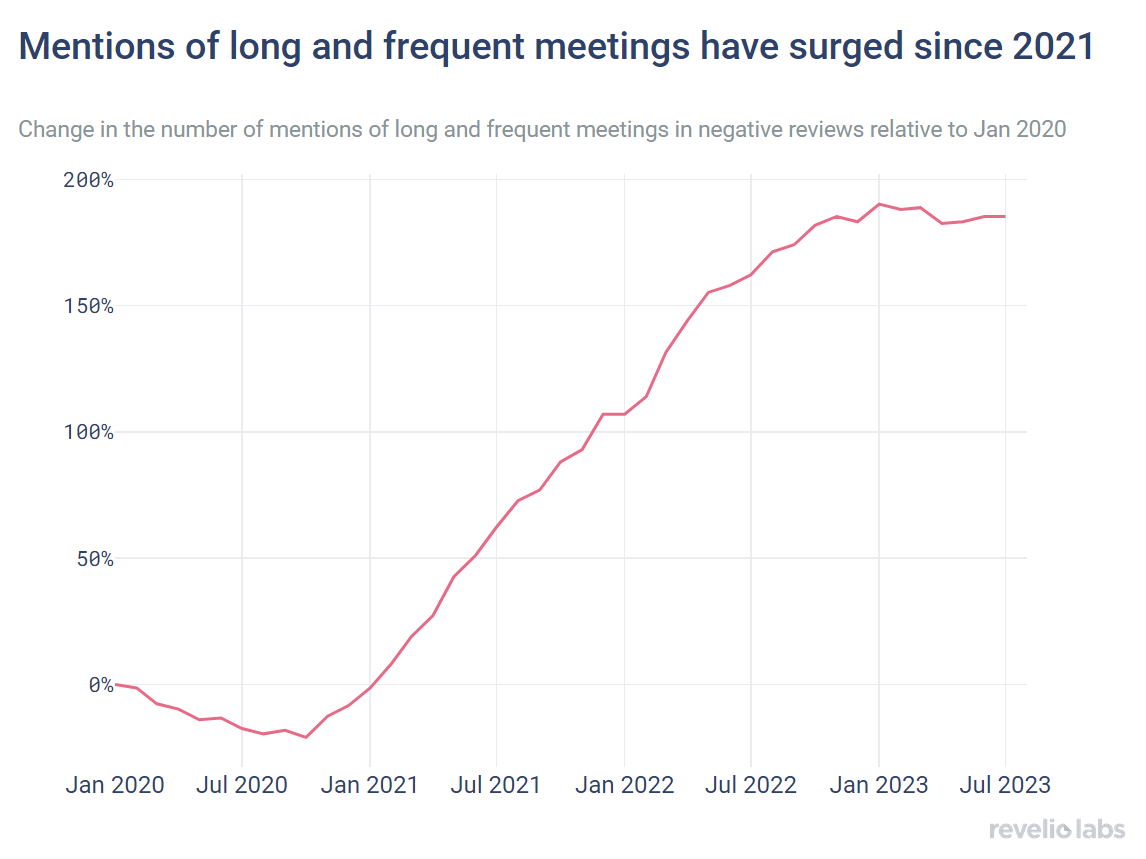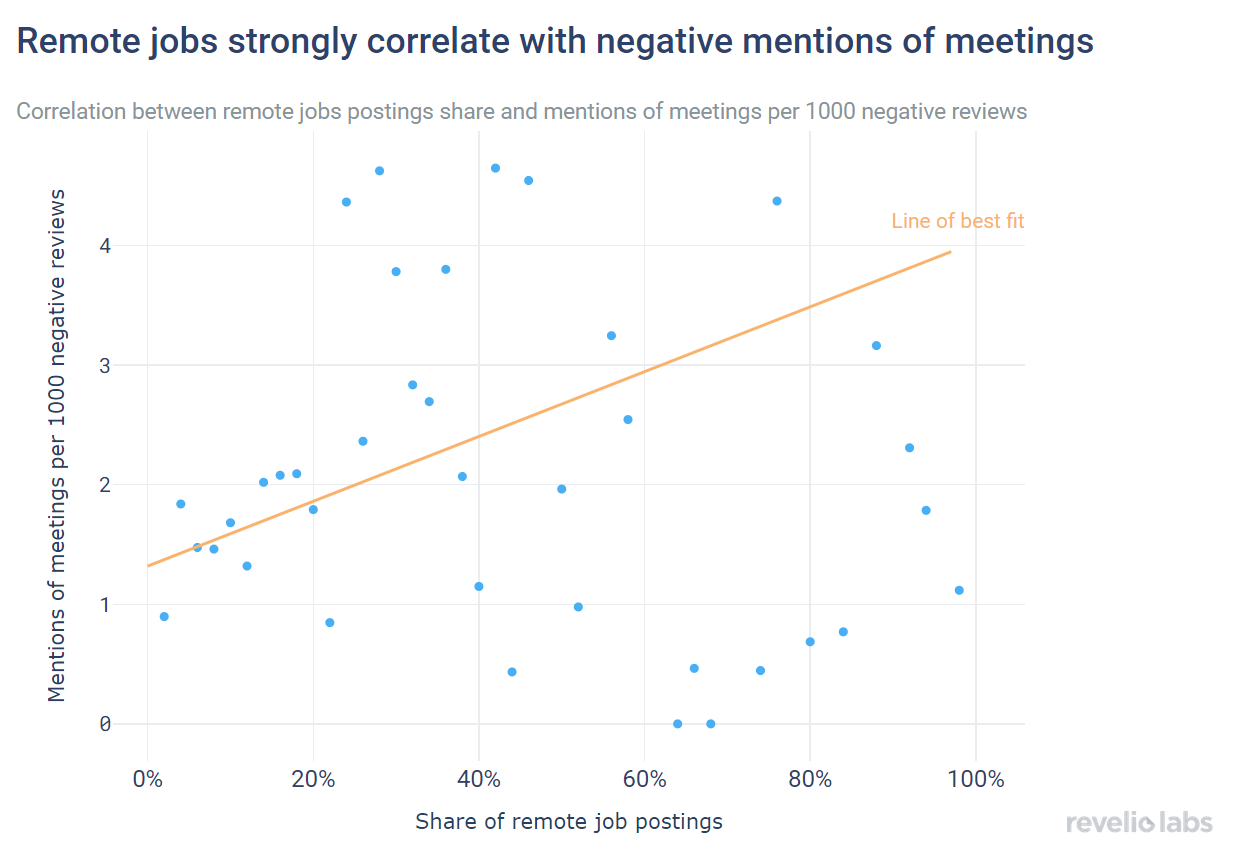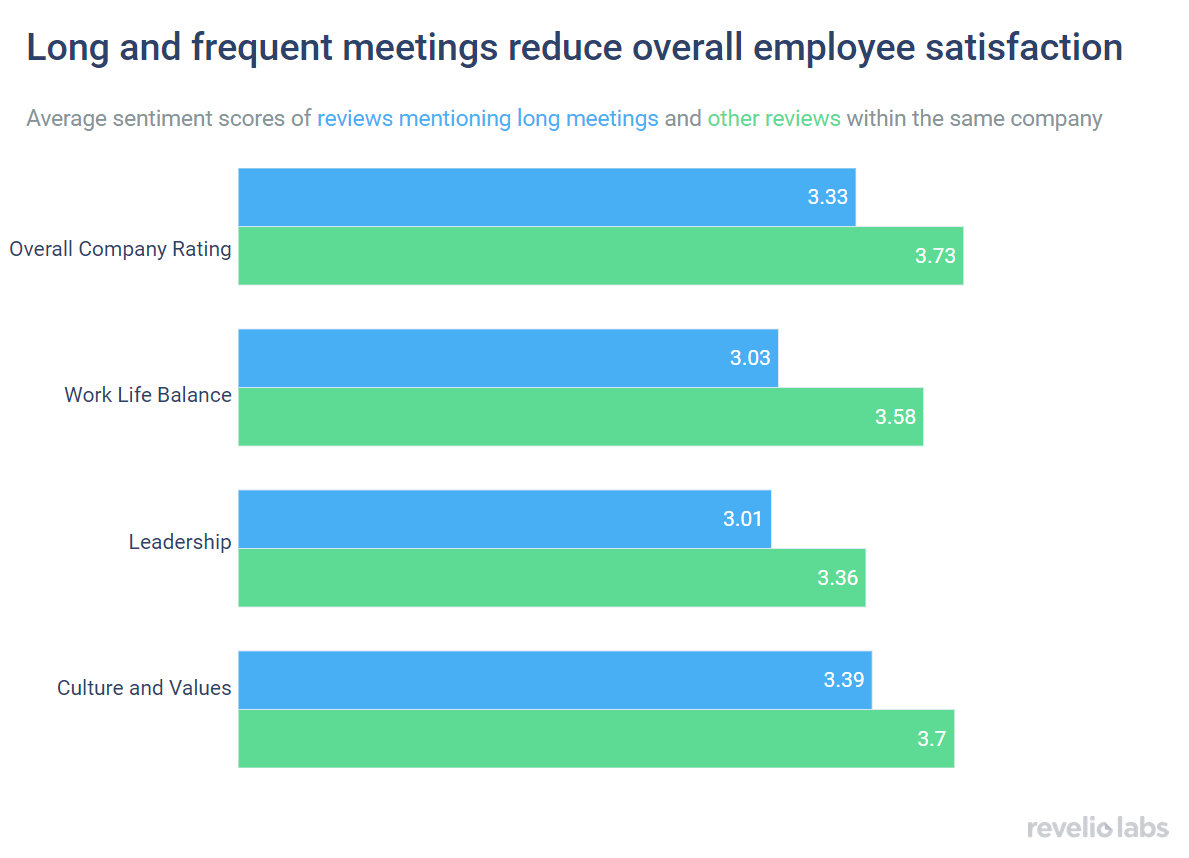One Thing About Remote Work That Employees Hate
This meeting could have been a Slack message

The number of negative reviews mentioning long meeting hours has increased significantly with the rising popularity of remote work in 2021.
Companies with a higher share of remote job postings tend to have a larger fraction of their employees complaining about long, frequent, and unnecessary meetings in negative reviews
Employees that mention long meeting hours in their reviews also rate the company negatively on work-life balance, leadership, and culture and values.
How many times have you looked at your calendar and thought: “How am I supposed to get any work done when I have eight hours of back-to-back meetings?” And how many times have you sat in some of these meetings wondering why you are even there and how these meetings are useful to your work?
You are certainly not alone. Many workers around the world deal with the same issue: long, back-to-back, unnecessary meetings. And they hate it just like you do!
Mentions of long frequent meetings and busy calendars often show up in online employee reviews. Negative reviews mentioning meetings have surged since 2021: the beginning of the remote era. It should be no wonder that some companies, most notably Shopify, have recently taken some active steps to get rid of unnecessary meetings.


We showed in a previous newsletter that workers prefer remote work, but meetings might be the one thing that workers hate about working remotely. We find in our workforce intelligence data a strong positive correlation between companies with a high fraction of remote jobs and the share of negative reviews that mention meetings. Moreover, employees in roles that are more likely to be remote, such as engineering roles, tend to complain even more about the long, frequent, and unnecessary meetings.
Sign up for our newsletter
Our weekly data driven newsletter provides in-depth analysis of workforce trends and news, delivered straight to your inbox!


Employees that complain about long and frequent meetings in their negative reviews are generally less happy than other employees in the company. If they have back-to-back meetings from 9 to 5, then they need to work longer hours, which affects their work-life balance relative to their peers. They also rate the company’s leadership poorly for embracing the long meetings culture.


These findings in our workforce intelligence data underscore significant conclusions for businesses: Do not leave your team thinking that the meeting could have been an email. And if something can be communicated in a Slack message, do not send that email!

